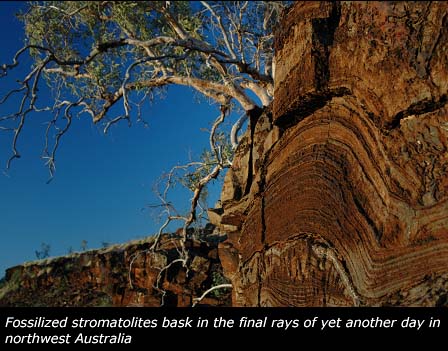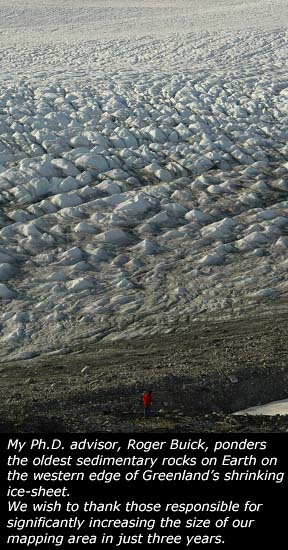 |
 |
 |
|
| home | about jelte | photography | erudition | links | PanAmerican Expedition |
|
Astrobiology and the Search for Meaning: An African boy’s perspective in The Astrobiology Newsletter [January 2006]
A Moral Dilemma I spent most of my life in Southern Africa. Like a grain of Kalahari
sand carried in the Okavango River that suddenly finds itself –
quite unexpectedly – in the fertile Okavango Delta, the river
of life somehow carried me to UW’s Astrobiology Program where
I found myself surrounded not by Gemsbok and Fish Eagles but rather
by some of the best astrobiological thinkers (and, after three years
of national conferences, I confidently count our graduate students
amongst these) on the planet. And then there’s the fact that someone needs to feed scientists such as myself. In return, we can rarely offer more than a vague commitment to the taxpaying public to increase the information content of the universe, largely through the publication of increasingly specialized articles in increasingly unreadable scientific journals. In Defense of Astrobiology Peoples of all cultures and times have derived Meaning from pondering the questions that we astrobiologists get paid to answer. Meaning, I contend, is largely a matter of timescale selection. We humans are evolutionarily conditioned to contextualize our experiences within the meagre timescale of a couple of generations at most. In much of the Western world, the dominant trend towards forever increasing individualism further shrinks this ‘window of reality’ to the pitiful lifespan of our own consciousness. Astrobiology certainly provides some refreshing temporal and spatial distance from this. What is to become of Meaning in the face of an expanding infernal Sun overrunning Earth’s orbit about 4 billion years from now? And is Meaning itself somehow slated to escape the ultimate universe-scale heat-death necessitated by the Second Law of Thermodynamics? With these upcoming events in mind, can a human-catalysed mass-extinction objectively be regarded as A Big Deal? With these thoughts in mind, I return to the microscope on my desk. Looking through the eyepieces, the dark mass of 3.8-billion year old graphitized organic matter still sits quietly, unmoved, waiting. To find our more about our research into the oldest life on Earth,
visit our
website.
|
|
info@yell2jelte.org
|


